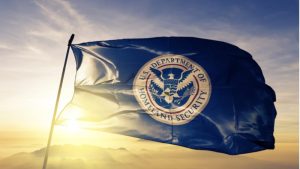Rep. Yvette Clarke, D-N.Y., reintroduced a bill last week that requires the Department of Homeland Security’s (DHS) Science and Technology (S&T) arm to have a more direct hand in the research and development (R&D) of activities concerning climate change. The Department of Homeland Security Climate Change Research Act will ensure that the DHS is prepared to confront […]
In a boon for higher education leaders, a new dashboard will visualize historical enrollment and population trends, forecast future trends, and provide insights into student migration flow and online-only education.
As part of its work to close the Homework Gap, the Federal Communications Commission (FCC) has allocated nearly $21 million in funding for the Emergency Connectivity Program (ECP).
Washington Gov. Jay Inslee signed into law last week legislation aimed at protecting the personal health data of all Washingtonians, making the state the first in the nation to codify into law broad protections for consumer health data.
In honor of Second Chance Month, Chicago Mayor Lori Lightfoot announced the launch of Chicago’s Re-Entry Resource Website. The website will serve as an information hub for all city-provided re-entry resources.
Customer service and the user experience includes internal clients. From managing requests to improving information flow, departments outside of the technology organization struggle with keeping track of an increasing avalanche of email inquiries, work orders, status reports, and data updates.
Missouri Gov. Mike Parsons has announced a new website for the Missouri 988 Suicide and Crisis Lifeline.
Pennsylvania Gov. Josh Shapiro this week signed an executive order that both cements his customer service transformation strategy and establishes the Commonwealth Office of Digital Experience (CODE PA) to improve online services for Pennsylvanians and streamline the way they interact with the state government online.
The Missouri Department of Public Safety has approved 428 grants totaling over $6.3 million to law enforcement, fire service, and EMS providers across the state for new equipment, supplies, personnel, and training.
Kansas Gov. Laura Kelly recently signed a bill that aims to improve public awareness of cybersecurity incidents, authorize the state to make changes to cybersecurity training, assessments, and responses, and modernize Kansas cybersecurity systems.













